As OKC adds to its license plate-reading surveillance network, see what the cameras can do
Drivers in Oklahoma City may have noticed some new additions to major intersections and roadways over the last year — automatic license plate reader cameras.
The city council recently agreed to purchase 65 more of these AI-powered cameras to be placed throughout the city in July, adding to the 25 they've had for a year at no cost through participation in a national study. The Oklahoma City Police Department declined The Oklahoman's request to provide the locations of those cameras, for which it is paying $257,500 this year to install the new cameras and maintain the others.
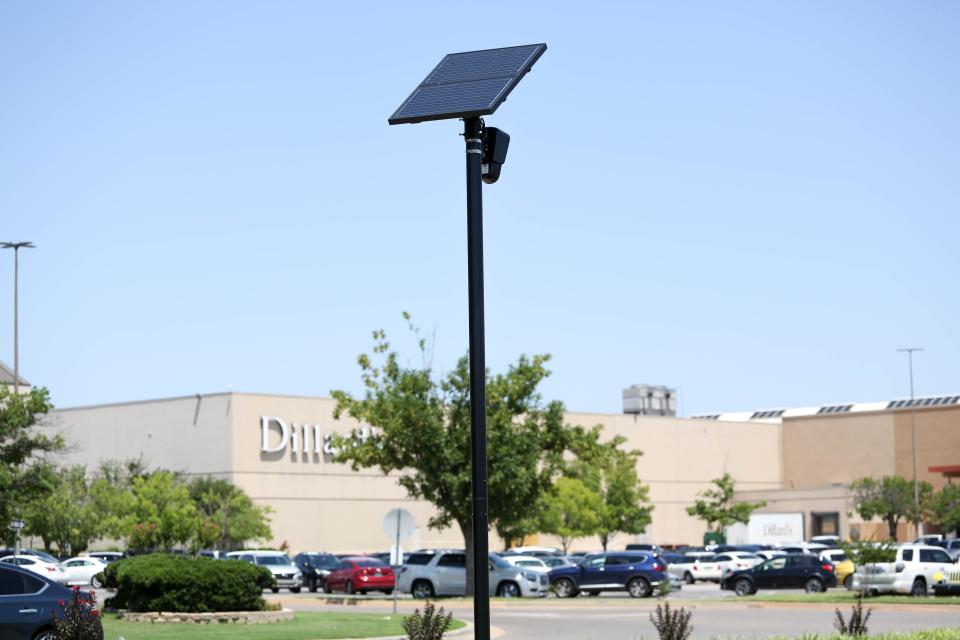
The fast-growing, Atlanta-based company, Flock Safety, has cameras in more than 1,200 cities and more than 40 states across the nation. The cameras it's bringing to Oklahoma City were created to assist police in solving crimes, said Flock Safety spokesperson Holly Beilin. Private groups like homeowners associations and Penn Square Mall already have Flock cameras, as well as other law enforcement agencies in the area like Guthrie police.
The implementation of Flock and other similar cameras, and the rise in law enforcement surveillance across the country has been met with skepticism from many who worry about an invasion of privacy. But proponents say the positives outweigh the potential negative consequences.
"I think the biggest thing that some people misinterpret regarding the cameras is, they are used for vehicles, they're not something that are used to identify a person," said Capt. Valerie Littlejohn, with the Oklahoma City Police Department. "There's no facial recognition or any personal identifiable information. It's not used for traffic enforcement. Again, these are cameras that are used to identify vehicles that are used in crime."
The installation of these cameras coincides with the upcoming launch of Oklahoma City's "Real Time Information Center." There, the cameras will be used as a tool, among others, for police to keep their finger on the city's crime pulse and respond in real time.
While The Oklahoman requested a tour of the soon-to-launch center and information about it, the department said it is waiting until closer to its implementation in July to provide media with more information.
What is Flock Safety?
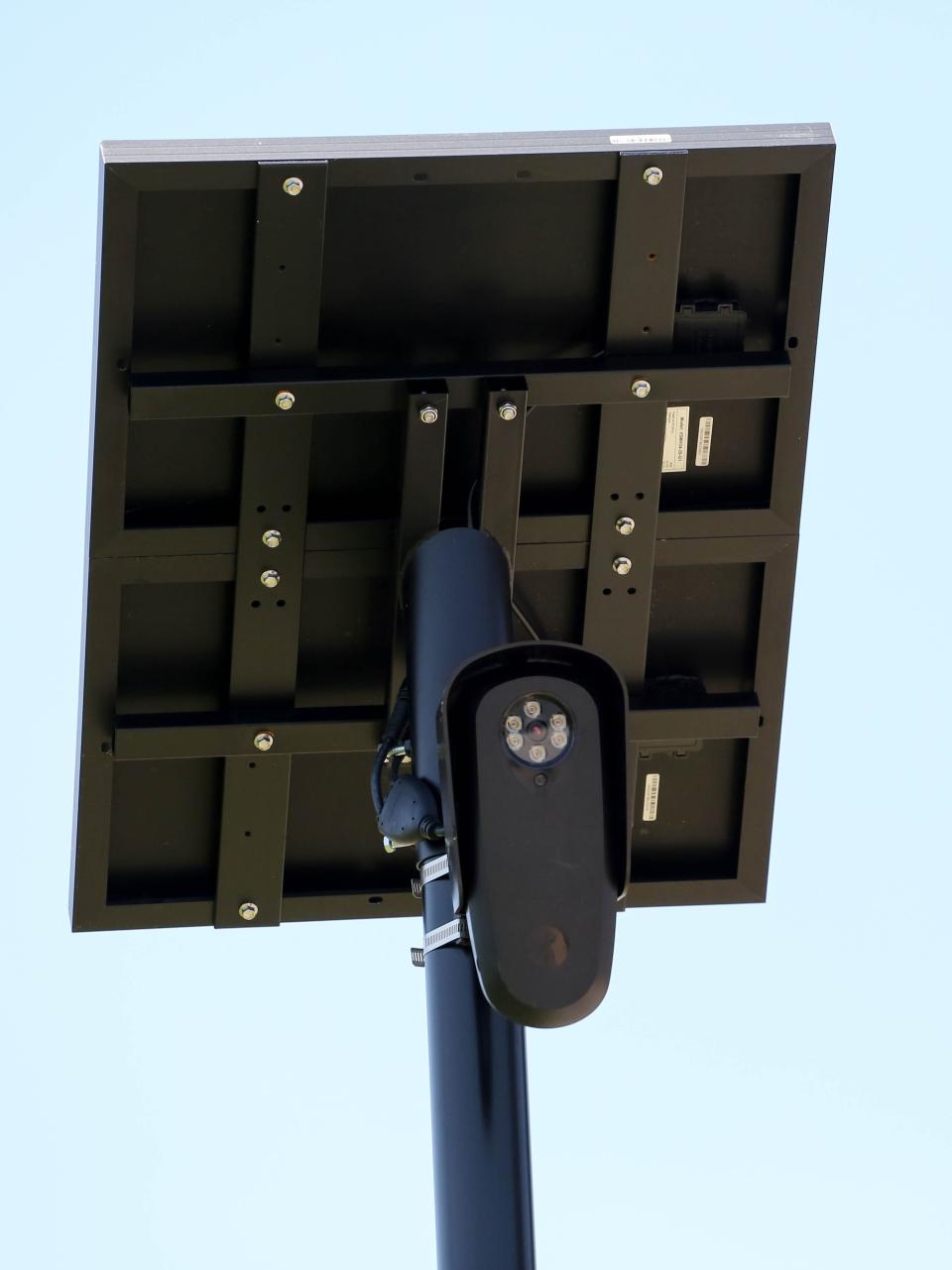
Flock Safety was founded in 2017 by CEO Garrett Langley.
The majority of Flock cameras — which come in a variety of forms to address different needs — are owned by law enforcement agencies, though this wasn't the company's original founding intent, Beilin said.
Langley founded Flock after experiencing property crime in his Atlanta neighborhood and becoming frustrated with the dead-end case and lack of evidence for police to solve the crime.
Flock's automatic license plate reader cameras, also known as ALPR cameras, were originally made for neighborhoods and HOAs to capture a perpetrator's license plate and lead to their arrest.
"(Our founder) was thinking of this as a neighborhood safety tool," Beilin said. "And then police started to use it to solve really serious crimes — property crimes, but also, finding missing children and homicides and all kinds of crazy stuff. So at that point, we transitioned into a law enforcement company (in 2019)."
What do Flock license plate-reading cameras do?
The cameras take a picture of the back of a vehicle and use optical character recognition to identify the license plate.
Flock cameras do not have facial recognition or speed measuring capabilities, and the data and images captured don't include personally identifying characteristics, Beilin said.
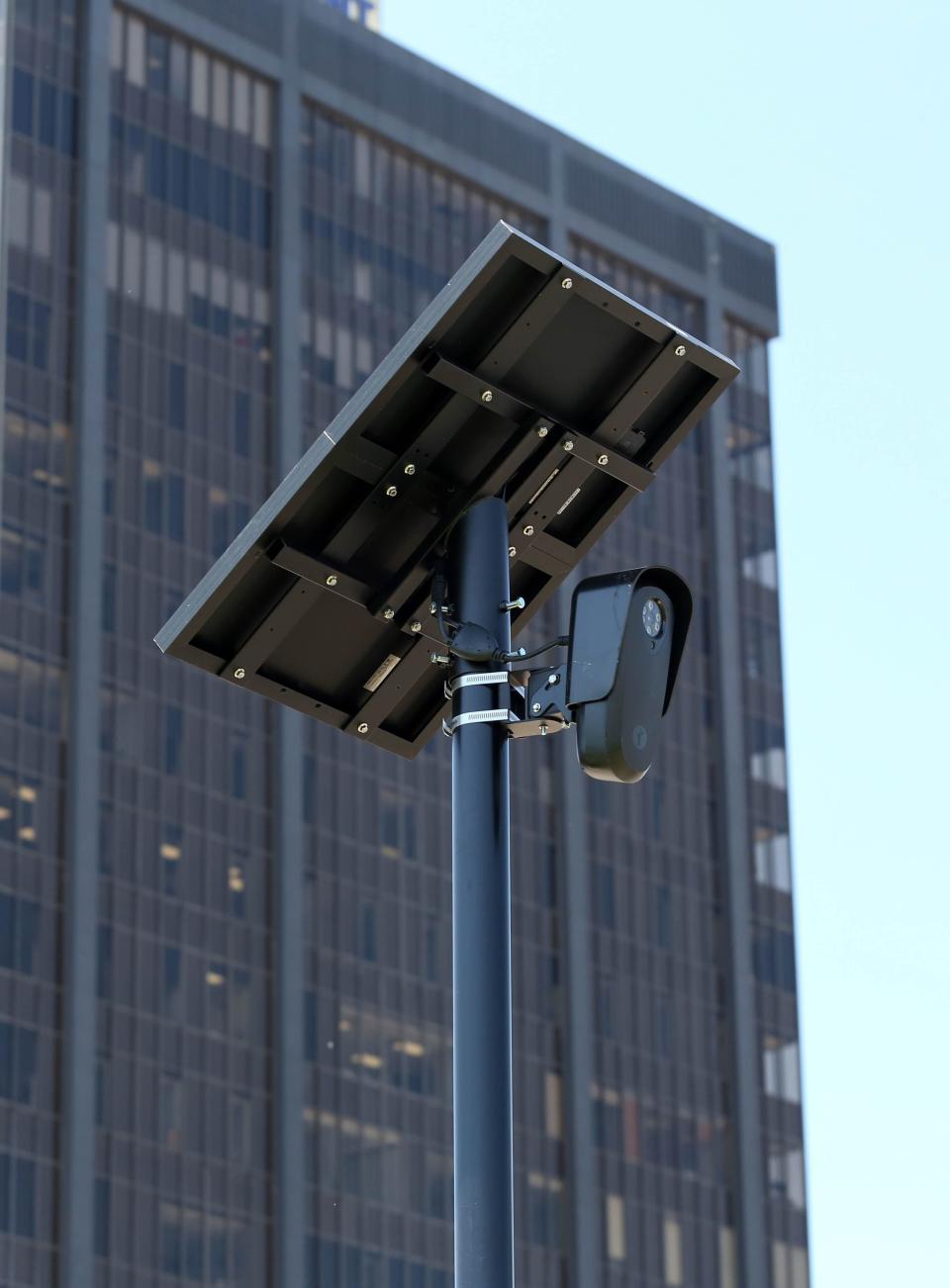
The plate is then compared to "hot lists" like the National Crime Information Center database, as well as lists created specifically by local law enforcement for things like stolen vehicles, missing persons or other crimes that have been committed involving a vehicle.
If the plate matches with one on those lists, that's called a "hit," and an alert will be sent to Oklahoma City police officers. But that doesn't mean an officer will automatically pull the vehicle over, Littlejohn said.
"You have to verify any hit before you take any kind of enforcement action on a vehicle," Littlejohn said.
Littlejohn said the cameras especially will be useful when police have to cut short a pursuit or avoid one altogether due to their dangerous nature.
"It's very good from an investigative standpoint of being able to follow up on certain crimes that involve vehicles that we have information on," she said.
Exclusive investigation: A police chase, a mother killed. It didn't have to happen.
Data from Flock cameras held for 30 days
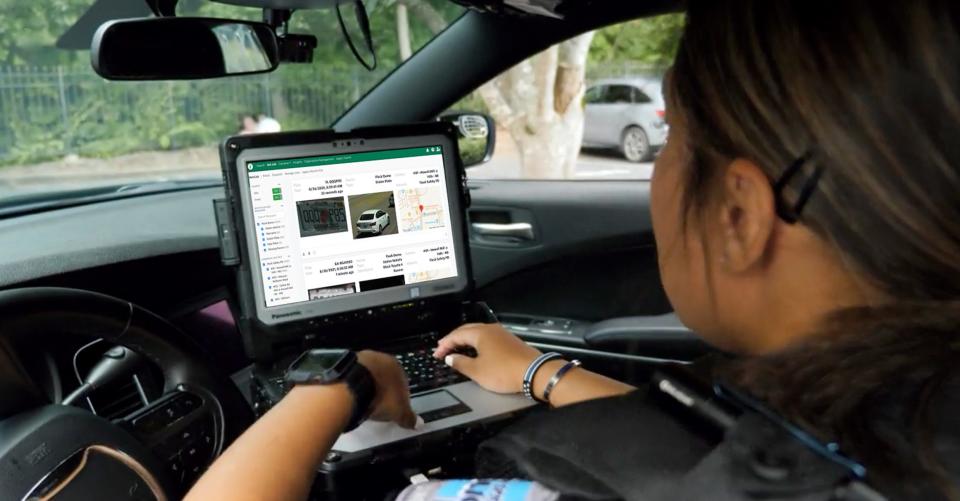
If the plate doesn't ping a match on any lists, the image and plate data is saved for 30 days using "the same level of encryption that the federal government uses," Beilin said.
The images are retained for a short period in case they are needed to solve a crime.
During the 30-day retention period — which could be longer in some jurisdictions depending on state and municipal laws, Beilin said — an Oklahoma City police officer trained to access Flock data can conduct a search for a specific license plate that may not be on a hot list but is of interest for an ongoing investigation.
But every search made in the system must be accompanied with a specific reason for the search, such as a case number. Searches also could be made for a vehicle description, if an eyewitness of a crime remembers details such as make, model, color or that it had bumper stickers but didn't catch the license plate.
Beilin said searches are saved indefinitely and can be audited at any time by law enforcement leaders if misuse is suspected.
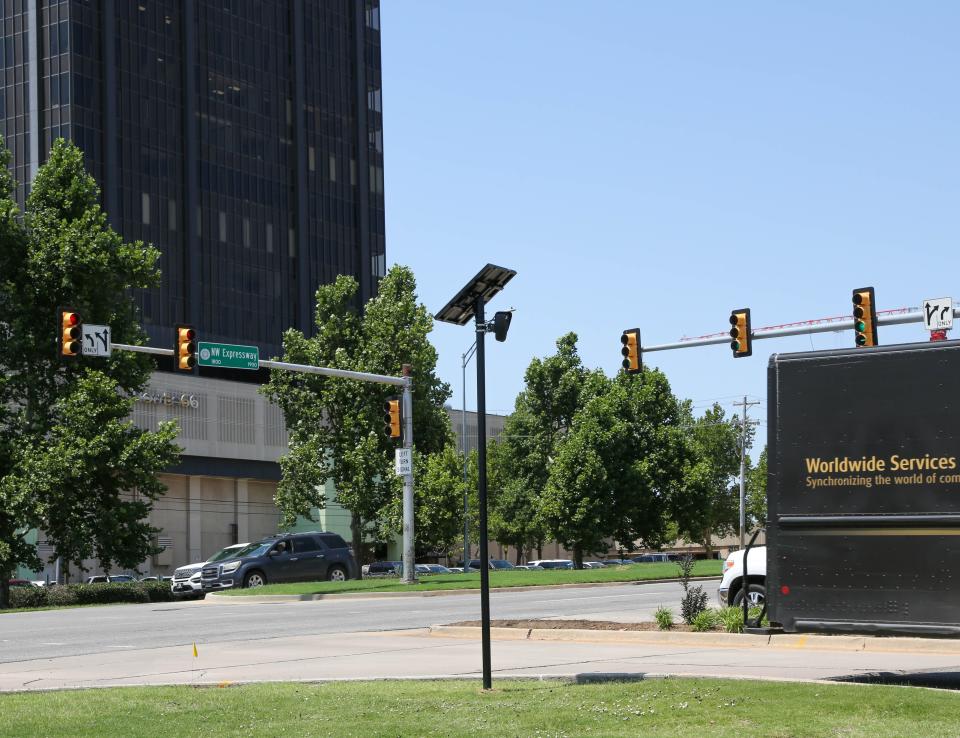
Some fear mass surveillance implications
The ACLU, among other groups, warns residents against supporting Flock and other ALPR and surveillance tools. While Flock holds that license plate data is not an invasion of privacy, the ACLU and the Virginia Supreme Court have argued license plates are "personally identifiable" as police can easily cross-reference the plate with registered vehicle owner data.
The ACLU also claims Flock is "a giant camera network that records people’s comings and goings across the nation, and then makes that data available for search by any of its law enforcement customers."
However, both Beilin and Oklahoma City police's ALPR procedures state that Flock data is not automatically available to any other law enforcement agency.
The data captured by OKC Flock cameras will only be accessible by officers who have received specific training in the proper use of ALPR data, according to the department's operations manual.
Another law enforcement agency can request access to OKC's data in the investigation of a crime, but Oklahoma City's procedure states that "ALPR data will not be shared as part of a law enforcement information database."
The ACLU and the Electronic Frontier Foundation, a nonprofit "defending civil liberties in the digital world," also object to the storage of data on license plates that aren't found on a hot list.
"With this data, you could easily put together in aggregate a map of somebody's entire day," said Matthew Guariglia, a senior policy analyst for the nonprofit. "You could see where anyone ever traveled to, you can see when they don't travel, you can see what routes they take. And this is a huge concern for civil liberties."
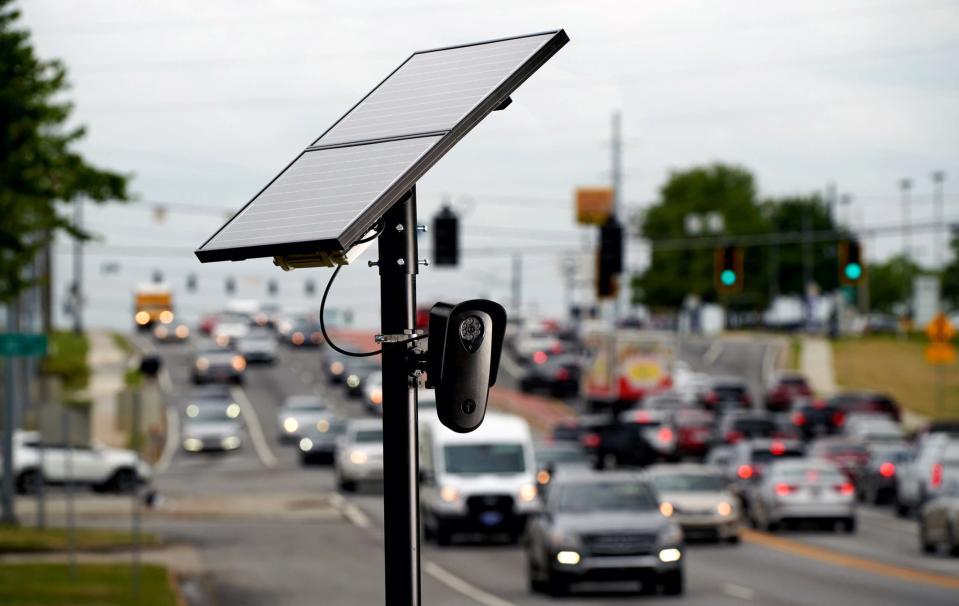
According to the Urban Institute, the findings are mixed from dozens of studies that have been done over decades to examine the relationship between surveillance cameras and crime. But, the indication is that cameras can reduce crime, especially property and vehicle crimes in parking lots.
A 40-year study of CCTV cameras in different countries showed they were associated with an overall 13% reduction in crime, and the effects were strongest in parking lots and residential areas.
But Guariglia said he isn't convinced.
"We have so much footage of crime happening on cameras, I just think there is no real evidence that people have an awareness of surveillance and therefore do not commit the crime they have been planning to commit," Guariglia said.
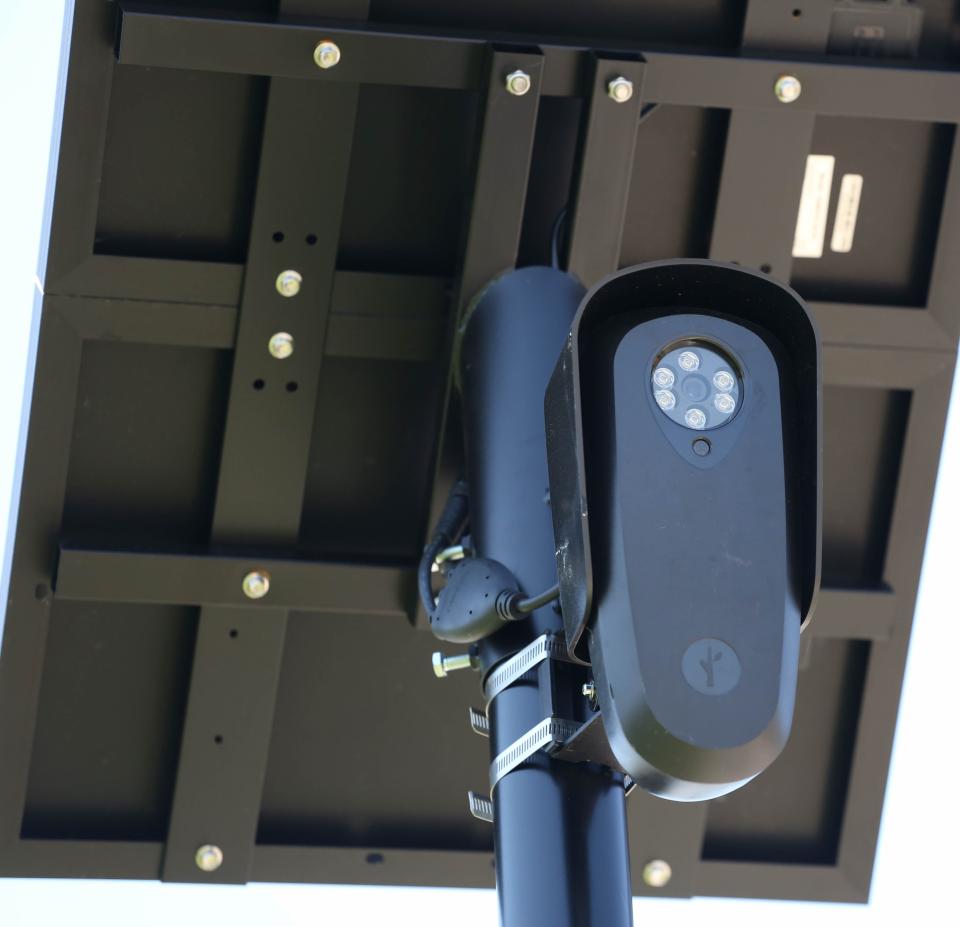
Why proponents say benefits outweigh the negative possibilities
Flock as a company is aware of the negative perceptions of their products, and the fear many hold of them. Langley explains counterarguments on the Flock website.
Beilin said one has to look at the big picture. Flock cameras consistently play a role in finding missing children, sex trafficking victims, solving homicides, rapes and assaults, preventing suicides and more, Beilin said.
With just the 25 cameras the department has had over the last year, more than 100 crimes have been solved, Littlejohn said.
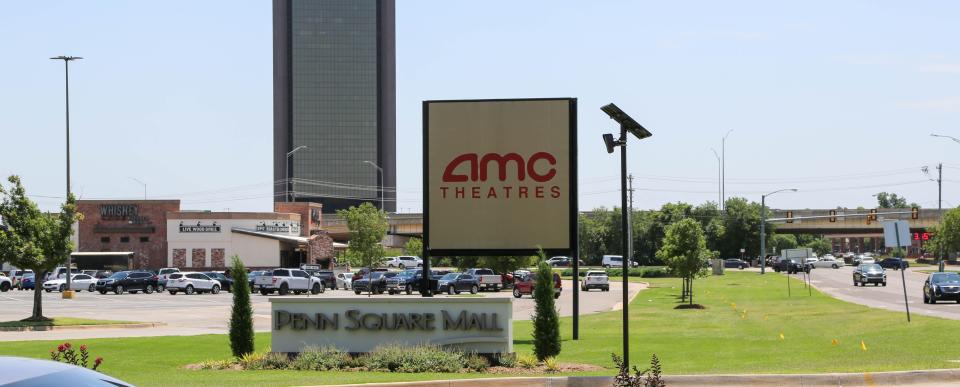
That, coupled with the accountability and oversight features and data retention limits, outweighs the possible negative consequences and "slippery slope arguments" against Flock, Beilin said.
"There are cameras across the US, Flock is by far the minority of cameras," Beilin added. "And we have laws in place in a democratic society that protect the privacy of individuals. So I think when you look at the full picture, it's frankly just obvious that this technology is worth it for what it is doing."
Jana Hayes reports on city government, homelessness, health and occasionally trending issues. Have a question or comment about this story or police surveillance in general? Reach her at jhayes@oklahoman.com.
This article originally appeared on Oklahoman: OKC police adding Flock license plate cameras to surveillance tools

